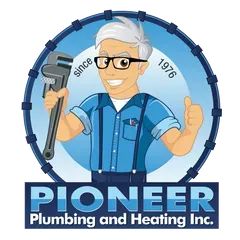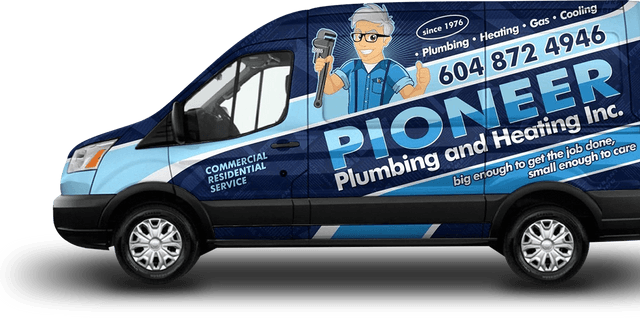Repiping Specialists
What is repipe? By definition, repiping is the process of replacing the plumbing pipes in a home or building. It is a large project that can be rather expensive, so you'll want to know when repairs to seal off pinhole leaks will do VS replacing the entire plumbing system.
If your home is beyond 50 years, repiping is a job you may consider. It's tough to decide on something like this yourself, so we like to recommend inviting one of our repipe specialists to inspect your plumbing and discuss options.
Call today and set up an appointment.
What Does a Repipe Job Include?
Repiping a house is a project that can be a little expensive. So you need to know if water pressure is the cause of leaks,. Maybe a simple repair is the right preventative measure, or replacing a single pipe will do for awhile. If the entire pipe system needs to be replaced, we have a lot of experience with that. It's actually a fairly common job in the plumbing industry.
Plumbing lasts a long time but, while there’s no definitive timetable of when you need to replace your pipes, it’s important to know they do take on a little wear and tear every day
If you spot any of the following problems in your home, there’s a good chance your house is due for re-piping. In these cases, we recommend calling a licensed plumber to assess the state of your home’s plumbing system. Ask one of our repipe plumbers to look things over if your home is 50 years or older.
If your home has lead pipes, a whole house repipe is the best way to go. These type of pipes can be harmful to your health by allowing lead to seep into your water supply. No water filter you buy can definitively remove lead from your drinking water. Copper piping wears out or clogs with sediment over time and needs to be replaced when that happens.
While repiping your home seems like a huge task to undertake (and it really is), it’s best to replace those pipes before larger, more expensive problems arise. After all, who would want to file a home insurance claim because of a burst pipe?
Old Plumbing Pipes
Although the lifespan of your home’s pipes varies due to a multitude of factors, a good rule of thumb is to replace them if they are 50-years-old or older.
In addition, unsafe materials, such as lead pipes, should be removed and replaced. It’s also worth noting that polybutylene pipes have the tendency to leak, so those should be checked on occasion.
If your home was built in the 1970s and the pipes are original, they’re probably made of galvanized steel. If that’s the case, they have a higher chance of erosion than newer pipes.
In addition, if your pipes are rattling, clanging, clacking and making more noise than they should be, that’s a red flag that something more serious is wrong.
Leaking Pipes
It probably goes without saying that leaking pipes should be replaced immediately. It may be normal to have condensation on hot water pipes, but it’s definitely not normal for your pipes to spring a leak.
If you spot a leak and opt for a patching job instead of a repiping job, just remember that all the pipes in your home are probably made from the same material and they may be next. To avoid further, more-costly repairs (like water damage from burst pipes), you may want to talk to us about repiping VS repair work.
Water Discoloration
If your tap water has a yellowish, reddish or brownish tint, that’s a sign that rust or sediment has built up in your pipes and a repiping job could be in your near future.
This is especially common after returning from a vacation. If this occurs only when your hot water is running, it may be due to a corroded hot water heater and not the plumbing pipes in your home.
Homeowner’s Guide to Repiping
here comes a time in every homeowner’s life when the pipes start to fail or develop other problems. During these times, the common solution is to simply repair or replace the sections of pipe causing the most trouble. However, a complete repiping can save both time and money in the long run. For houses with lead pipes, this is a necessary step, but even homes with older, worn pipes that contain no lead can benefit from repiping.
Repiping 101
Much like the human body, your home has its own internal systems. If the frame is the skeletal structure and wiring is the nervous system, then pipes are the circulatory system. These pipes move hot and cold water between the water heater and the rest of your home. They also pump in clean water and remove waste from the house to a sewer or septic system. As such, the pipes in your home wear down and may leak, burst, or develop blockages over time, much like your blood vessels.
When a pipe becomes damaged, you may choose to repair or replace just that pipe. However, older pipes may be developing problems where you can’t see them. Repiping is essentially the same as being able to replace part or all your entire circulatory system at one time to stop potentially serious breakdowns and save on expenses from multiple small repairs.
When Should I Consider Repiping My Home?
The best time to consider a full repiping is when you have old metal (such as galvanized iron) or polybutylene (poly) piping. These are more prone to leaks and may also contaminate your drinking water in certain cases. Repiping can also be a proactive move to upgrade pipes that are more than five years old. Meanwhile, partial repiping is an excellent choice when remodeling, and may be used to replace sections of damaged pipe when your budget can’t handle a full repiping.
What Are The Pros and Cons of Repiping?
Repiping can solve a number of plumbing issues, including:
- Low water pressure
- Temperature fluctuations in sinks and baths when you flush the toilet
- Slab leaks
- Rusty or yellow water
The biggest issue with repiping is the cost. Even if you are an expert DIYer, you will need an inspection of your existing pipes, the materials, and any tools. Thus, this may not be a wise investment if your current pipes are in good condition.
Call any time to go over the details of what would be involved to repipe your home.
The Best Material to Repipe a House in Richmond
If you decide to repipe your house, cross-linked polyethylene, or PEX, is the new standard. This plastic alternative is more cost-effective than copper, since it's made of plastic. It is lighter in weight and easier to install, plus it's a very durable material that can last for many years. If you decide to opt for a premium brand we use wirsbo PEX tubing when that is called for.
The biggest issue with repiping is the cost. Even if you are an expert DIYer, you will need an inspection of your existing pipes, the materials, and any tools. Our plumbing specialist team have experience repiping a wide range of homes and businesses, so you're in good hands with us.
Call any time to go over the details of what would be involved to repipe your home.






